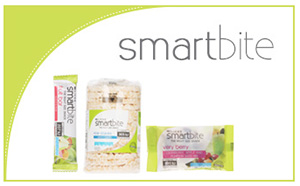Many of the below weight-loss terms have been adopted into ‘common knowledge’ of the topic – but they can actually be counter-productive to your goals, warn the professionals. Read on for our list of terms that dieticians and nutritionists would rather were banned, and find out why.
1. ‘Cheat day’
If you’re on a diet so restrictive that you need to spend an entire day eating all the foods you’re not allowed to have, it’s probably not sustainable in the long term, warns registered dietician and nutritional consultant Cheryl Meyer. “It sets you up for failure, which makes you feel bad about yourself – and often drives you straight towards the very foods you’re trying to limit,” she cautions.
2. ‘Clean eating’
Although the idea of ‘clean eating’ stems from a worthy place, the problem with this term is that many people take it too far, says Meyer. “The basic principles of clean eating are admirable: consume fewer processed foods and more whole foods and minimally-processed fare,” she says. “But the term sets up the problematic notion that if you aren’t eating ‘clean’, you’re eating ‘dirty’, which is not a healthy attitude towards a balanced, sustainable eating plan."
3. ‘Detox’ or ‘cleanse’
Detoxes and cleanses are popular dieting fads – but there's no need for them, says Meyer. “Your kidneys and liver do all the detoxing your body needs on their own, you don't need a detox juice or pill to lose weight or ‘cleanse’ your body.”
4. ‘Gluten-free’
Just because a food is labelled as being free of a certain ingredient doesn’t necessarily make it healthy, says registered dietician Celynn Erasmus. Something labelled gluten-free can be loaded with sugar, for example, so always read the ingredients carefully before assuming something is good for you.
5. ‘Moderation/willpower/remove/avoid/omit/deprive’
“Eating healthily shouldn’t be about deprivation or difficulty,” says Erasmus. “It should be about feeling empowered, feeling energised, feeling healthier, and making the right choices for the right reasons. Trying to beat your body into submission by willpower alone won’t work. Instead, learn about how your body works: about hunger, appetite, digestion and energy balance. Use this information to make better nutrition choices most of the time, not just this week – but for the rest of your life.”
6. ‘Reward foods’
It’s easy to fall into the trap of wanting to reward your hard work on a weight-loss plan, says Erasmus – but this can undo all your progress. “Reward is good as we know that people change behaviour more when they’re incentivised rather than punished. However, reward shouldn’t be about the thing you’re trying to have less of, or gain more control over. So rewarding yourself with cake, for instance, or more treats is not a great idea,” she says.
Rather reward yourself with non-food related activity such as a special gift or time with a friend or a pamper treatment, she recommends.
7. ‘Goal weight = 50kg’
“Don’t focus on a magical number,” warns Erasmus, who has seen many women not allow themselves to feel good until they reach that one specific goal. “It’s much healthier and balanced to focus on all the other benefits, such as increased energy levels and more self-confidence or fitness, rather than just focusing on weight.”
FEATURED PRODUCTS: Clicks Smartbite
Looking for nutritious, healthy food and snack options to boost your energy and live your healthiest life? Make use of the convenience of online shopping to try out the Clicks Smartbite range, which includes food, snacks, and appliances.
IMAGE CREDIT: 123rf.com


